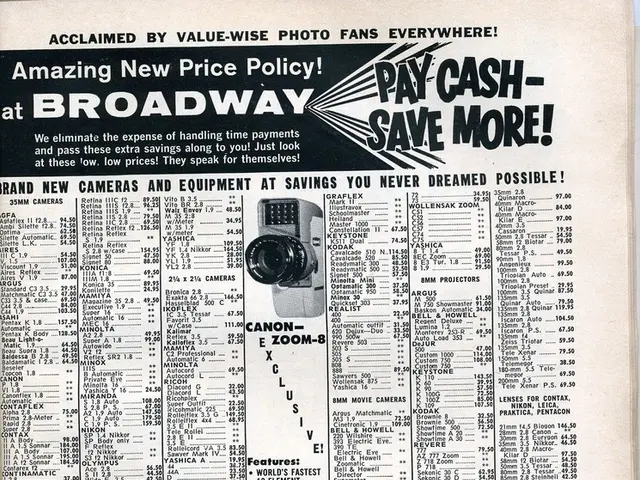Gambling earnings in Pennsylvania hit a record-breaking $6.4 billion
In a remarkable turn of events, Pennsylvania's iGaming sector has experienced a significant boost, with revenue reaching an impressive $2.48 billion during the 2024/2025 fiscal year, marking a 27.09% year-over-year increase[1]. This growth has contributed to a record total gaming revenue of nearly $6.4 billion for the fiscal year[1].
The primary drivers behind this substantial increase include a surge in internet gaming popularity, a shift in player preferences towards online formats, and the Pennsylvania Gaming Control Board's (PGCB) expansion and regulation efforts[1][2].
The popularity of iGaming has been on the rise, as indicated by a reported 32.3% increase in monthly internet gaming revenue in June 2025 compared to June 2024[2]. This suggests that player participation and engagement in iGaming platforms have been growing steadily.
Other segments like retail table gaming showed a slight decline, but the robust performance of iGaming and sports betting helped drive overall revenue growth[3][4]. The PGCB's efforts to expand and regulate the industry may have played a role in creating a secure and attractive environment for operators and players, though specific regulatory changes are not detailed in the sources[1].
The $6.4 billion result includes revenue from casino slots and table games, sports betting, iGaming, video gaming terminals (VGTs), and fantasy sports contests[1]. However, revenue from sports betting decreased slightly by 0.22% year-over-year to $487.6m for the 2024/2025 fiscal year, and the revenue from fantasy sports contests decreased by 0.66% to $19.1m for the same period[4]. On the other hand, VGTs revenue increased by 0.70% to $41.4m for the 2024/2025 fiscal year[4].
The revenue from land-based table games represents a decrease compared to the $957.6m reported during the fiscal year of 2023/2024, while land-based slot machine revenue remained roughly on par with the previous year's result at $2.44bn[4].
The increase in revenue has led to a significant boost in tax revenue from regulated gambling, with tax revenue soaring to nearly $2.8 billion during the 2024/2025 fiscal year[1]. This revenue helps fund state, county, and local development projects and initiatives, supports the agricultural industry, and boosts the Commonwealth's General Fund[5].
The report covers the period between July 1, 2024, and June 30, 2025, and the figures are prior to any possible adjustments by the PA Department of Revenue[1].
[1] Pennsylvania Gaming Control Board, Financial Report for Fiscal Year 2024/2025 [2] Pennsylvania Gaming Control Board, Monthly Internet Gaming Revenue Report for June 2025 [3] Pennsylvania Gaming Control Board, Financial Report for Fiscal Year 2023/2024 [4] Pennsylvania Gaming Control Board, Revenue Report for Fiscal Year 2024/2025 [5] Pennsylvania Gaming Control Board, About Regulated Gambling in Pennsylvania
- The increase in internet gaming revenue, such as sports betting and casino-games, has been a significant factor in Pennsylvania's iGaming sector growth, with a reported 32.3% rise in monthly revenue from June 2024 to June 2025 [2].
- The Pennsylvania Gaming Control Board (PGCB) has played a key role in the expansion and regulation of gambling trends, including casino-and-gambling and lotteries, which may have contributed to the rise in player participation and engagement [1][2].
- Despite a slight decline in retail table gaming, the robust performance of iGaming and sports betting, coupled with the PGCB's efforts, has led to a record total gaming revenue of nearly $6.4 billion for the 2024/2025 fiscal year. This figure encompasses revenue from casino slots and table games, sports betting, iGaming, video gaming terminals (VGTs), and fantasy sports contests, with VGTs revenue showing an increase for the same period [4].







